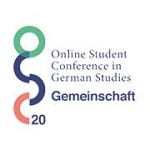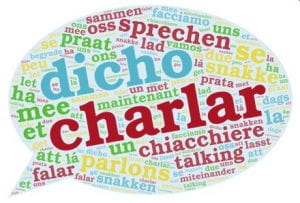 Heidelberg at home
Heidelberg at home
During the summer holidays, I attended an online DAAD German Language Course at Heidelberg University. Being awarded the DAAD scholarship for a short term summer language course was a truly humbling experience. My tutor was very friendly, helpful and engaging. In addition, the participants in the seminars helped me to stretch and challenge myself when it came to German grammar and German conversational skills and key vocabulary. The fact that interactive online virtual excursions also took place was crucial in establishing my desire to learn German, not just as a skill but as a mechanism for conversation and cultural engagement, but also as a stepping stone towards a stronger cultural understanding of German history, language and culture. Most strikingly, the online excursion to Schwetzingen Palace enabled me to learn about architecture and the comparisons between French and English garden architecture.
I also had the opportunity to learn that Schwetzingen Palace is home to Schwetzingen Moschee, a sign of religious and cultural tolerance even in the 18th Century. Voltaire also visited the Palace which was fascinating for me to find out! Another key highlight was the excursion to the Schwarzwald during which I seized the opportunity to learn about the effects of climate change, good and bad. For instance, I found out that over the years due to pollution the forest has been affected, however, Freiburg im Breisgau is an ecological city that prides itself in being a green German city, that housed Erasmus the renowned Dutch scholar! Furthermore, together with the rest of the attendees, I saw a Tudor Era house from the 1500s and another from the 1600s and learnt about traditional women’s fashion.
During the lessons, I pushed myself to speak German a vast majority of the time which accelerated my knowledge of German grammar and language. Similarly to the opening ceremony, in the closing ceremony there was a concert, however, more surprisingly, there featured comedic performances and heart touching music to celebrate the fruition of our German language learning adventure! I truly felt at home in the heart of Heidelberg even though I was studying all the way from sunny Kent!
Note to readers: Look out for another riveting blog coming soon about my experience so far in Heidelberg for my year abroad!
 Recently, during my year abroad placement at Universität Heidelberg, I found out from DAAD that my poem written in German has been selected to be displayed at the German Embassy in London as part of the main festival in October 2022. The competition was called “Zusammen Across Cultures”.
Recently, during my year abroad placement at Universität Heidelberg, I found out from DAAD that my poem written in German has been selected to be displayed at the German Embassy in London as part of the main festival in October 2022. The competition was called “Zusammen Across Cultures”. I thank my family, my mother, father and brother, the German Department at UCL, SELCS, Maya, Luise, Manuela, Stella, Ema, Jessica and Lena. Most of all I thank London, Aachen and Heidelberg. Keep writing! Schreiben ist ein Abenteuer. Writing is an adventure.
I thank my family, my mother, father and brother, the German Department at UCL, SELCS, Maya, Luise, Manuela, Stella, Ema, Jessica and Lena. Most of all I thank London, Aachen and Heidelberg. Keep writing! Schreiben ist ein Abenteuer. Writing is an adventure. Close
Close


 Heidelberg at home
Heidelberg at home 

